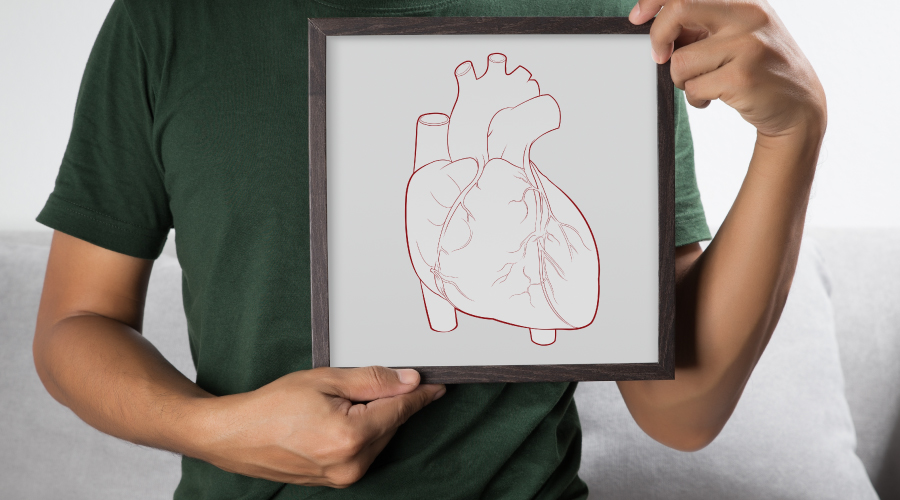

Every year, hundreds of thousands of people under the age of 25 worldwide die from sudden cardiac arrest. Although it is uncommon, it can occur in young people. However, there are ways to identify risk factors that can assist in stopping this from occurring. Want to learn about cardiac arrest meaning and causes? Continue reading to learn what it is, the causes behind this issue and symptoms of sudden cardiac arrest.
Sudden Cardiac Arrest Meaning
Before diving into the signs and symptoms, let’s learn the sudden cardiac arrest meaning in brief; it is the abrupt loss of all heart activity as a result of an abnormal heart rhythm. This causes the blood flow to the brain and other essential organs to be cut off. Sudden cardiac arrest can result in death in a matter of minutes if care is delayed. However, survival is possible with prompt, and proper medical care. Sudden cardiac death may occur if resuscitation fails or is delayed.
Moreover, a heart attack and a sudden cardiac arrest are not the same thing. When blood flow to a part of the heart is cut off, a heart attack, often referred to as a cardiac attack, occurs. Sudden cardiac arrest, on the other hand, is not caused by a blockage. However, a heart attack may result in a shift in the electrical activity of the heart and can trigger a sudden cardiac arrest.
Signs and Symptoms of Cardiac Arrest
In some cases, there are no prior warning signs of cardiac arrest. However, in most cases, cardiac arrest symptoms might include:
- Chest pain or discomfort related to exercise
- Frequent instances of inexplicable fainting (syncope)
- Unexpected fainting (syncope) or almost fainting, often during or immediately following physical activity
- History of frequent fainting or atypical seizures or seizure-like activity, particularly during or immediately following a physical activity
- Feeling lightheaded or dizzy
- Excessive exhaustion or inexplicable shortness of breath during physical activity
- Accelerated heartbeat and palpitations
- Recent viral infection accompanied either by chest pain or alterations in exercise tolerance
- History of a cardiac murmur for which the underlying cause is uncertain
- History of hypertension
- Previous diagnosis or treatment of a heart problem
- Activity limitation due to a heart condition
Sudden Cardiac Arrest Causes
The electrical system in your heart regulates the rhythm and pace of your heartbeat. When the heart’s electrical system malfunctions and results in irregular heartbeats, also known as arrhythmias, a sudden cardiac arrest may occur. Arrhythmias that result in a SCA can be brought on by a number of illnesses and ailments. There can be many reasons for cardiac arrest, such as:
- Ventricular fibrillation is a kind of arrhythmia that prevents the heart’s lower chambers from pumping blood to the body by causing rapid and erratic heartbeats, leading to SCAs.
- Coronary artery disease occurs when the heart’s arteries are unable to pump enough oxygen-rich blood to the heart. The accumulation of plaque within the lining of the major coronary arteries is usually the reason for this.
- Certain physical stressors, such as intense physical exercise, cause your body to release the adrenaline hormone, which can cause your heart’s electrical circuitry to malfunction.
- Extremely low magnesium or potassium levels in the blood as the electrical system in your heart is significantly influenced by these minerals.
- Significant blood loss
- Extreme oxygen deprivation
- Some inherited conditions that can result in arrhythmias
- Structural heart abnormalities such as an enlarged heart brought on by excessive blood pressure, heart infections or severe heart problems.
Sudden Cardiac Arrest Treatment
A defibrillator must be used immediately for sudden cardiac arrest treatment. A defibrillator is a machine that shocks the heart to restore normal rhythm. It may work well if done within minutes of the sudden cardiac arrest. Cardiopulmonary resuscitation (CPR) should be administered to someone showing symptoms of sudden cardiac arrest until defibrillation is possible. You’ll probably be admitted to a hospital for continued care and treatment if you survive a cardiac arrest. Your medical team will monitor your heart closely. They might try to lower your chances of having another SCA by giving you medication. Additionally, they will look into reasons for cardiac arrest and treat any underlying medical problems.
Conclusion
The bottom line here is that sudden cardiac arrest can affect even healthy individuals. This, in turn, lays stress on the fact that raising awareness about heart health is of utmost importance. Multiple tools, like genetic testing, advanced monitoring technologies, and wearable defibrillators, are available these days, which are beneficial in diagnosing signs of cardiac arrest.
So, what are you waiting for? Go, get yourself checked at the earliest in order to keep your heart fit and fine.




